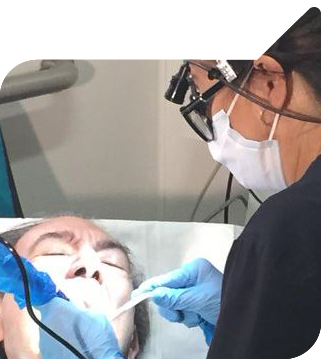Bringing health and wellness services into community settings and homes.
As the demand for health care services and needs grow with rising costs and demographic pressures, telehealth is the next important step in providing high-quality, affordable, and accessible care and treatment. The Front Porch Center for Innovation and Wellbeing (FPCIW) has been a pioneer in championing telehealth solutions for older adults, and has been at the forefront of promoting successful telehealth programs and technologies.
In partnership with like-minded, innovative provider organizations, FPCIW is in the business of tackling a wide range of health care needs as we age. Here’s a look into just some of the telehealth research and projects we are actively engaged with:
Model eHealth Community for Aging (MeHCA). The deployment of telehealth solutions in partnership with CARING Housing Ministries’ affordable housing communities through the Model eHealth Community for Aging project has been critical to the development of an ecosystem impacting the health and wellness needs of older adults while supporting a vision for aging in place. This multi-site, multi-partner initiative launched a multitude of telehealth programs that included remote wellness monitoring, tele-podiatry, video conference education, and digital health literacy. A report by a UC San Francisco researcher found that MeHCA produced high engagement, satisfaction and positive patient outcomes. MeHCA’s new accessible delivery model focuses care in the places where patients are most comfortable–in their homes and community centers.
TeleDentistry. In partnership with the University of the Pacific Dugoni School of Dentistry, FPCIW is deploying the Virtual Dental Home (VDH) demonstration project at Front Porch and partner communities, based on the telehealth infrastructure built on the Model eHealth Community for Aging. This 3-year initiative will reach 400 unique older adults, targeting those particularly at-risk of poor oral health, and provide first-level intervention of dental care by a hygienist providing cleanings, evaluations, and preventative education onsite at affordable housing communities, senior-serving organizations, and other community-based locations.
TeleMedicine at Walnut Village. Under a partnership with the UC Irvine Senior Health Center, the Walnut Village Care Center has pilot tested a telemedicine cart to connect residents with their UCI physicians. The project uses video conferencing and broadband-enabled peripherals (stethoscope, high definition camera, store/forward equipment) to conduct telehealth sessions for UCI patients. UCI has also been piloting a telehealth initiative at Walnut Village to explore medication management consultations with the community’s residents and a pharmacist through video chat on a tablet computer.
Remote Patient Monitoring (RPM). The Model eHealth Community for Aging launched an exciting study that explored the wellness potential of remote blood pressure, weight and glucose monitoring. The project yielded not only statistically-significant reductions in blood pressure, but also high patient engagement, satisfaction, and self-awareness. With these impressive results in hand, FPCIW has embarked on a further test of RPM technology at Front Porch communities to proactively support chronic disease management, while addressing hospital re-admissions and discharges by keeping people healthy and safe in their homes. This pilot employs the Care Innovations Health Harmony solution with independent living residents and residents recently discharged from care centers at at both Kingsley Manor and Claremont Manor communities.
TeleMental Health. Funded by the LeadingAge Innovations Fund, FPCIW demonstrated the effectiveness of video conferencing and telemental health as a strategy to address the mental health needs of underserved seniors. The project assisted older adults dealing with symptoms of depression to better cope with their circumstances, and targeted 31 residents of two senior affordable housing communities and members of a senior community center in the Greater Los Angeles area. Two mental health providers (USC Telehealth and Special Service for Groups) conducted 252 virtual counseling and therapy sessions through video chat using iPads. As a component of the educational outreach and recruitment strategy, the project also conducted video conference workshops. A total of 330 older adults attended 9 educational presentations on mental health topics such as depression and anxiety, brain health and memory, coping with life changes, brain fitness and Alzheimer’s disease. A USC Davis School of Gerontology researcher evaluation of the project found high engagement and satisfaction levels among the patients.
FPCIW firmly believes that the continued expansion of telehealth solutions represents an important shift towards an accessible and affordable platform of health services for aging communities.


